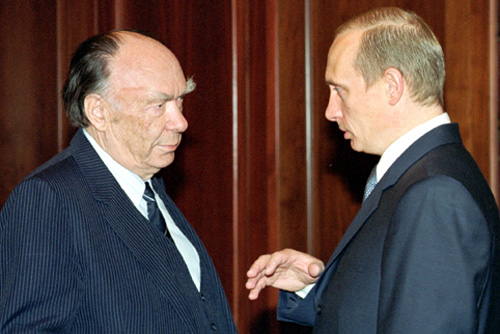
Today’s Religion & Liberty Transatlantic features a biography of the forgotten architect of perestroika, Alexander Yakovlev (1923-2005). Born to Communist parents, rising to become the head of propaganda in the Soviet Union, Yakovlev came to embrace freedom and expose the horrors of Marxist-Leninist rule – not least, the persecution of people of faith. In the pantheon of late figures who contributed to the fall of Communism, Yakovlev deserves more notoriety than he receives, argues Kaetana Leontjeva-Numaviciene in her essay.
Although raised by convinced socialists, Yakovlev became disenchanted with Marxism as early as 1956, when Stalin’s crimes against humanity became known. Probing the essence of socialism, he found it entirely artificial and incompatible with human nature.
Socialism, he wrote, contradicts human flourishing:
There is a harmony of opposites: cooperation of classes, solidarity of classes. And only because of this does society thrive and develop. Any organization is harmonious cooperation; any division of labor is a mutual complement of diverse and opposite functions.
Despite his misgivings, he continued working for the Party but, in time, could hold his peace no longer.
After denouncing resurgent Russian nationalism – plus ça change, plus c’est la même chose – he lost his prestigious position as head of Soviet propaganda and spent years in Canada. Providentially, that post introduced him to an up-and-coming Communist politician named Mikhail Gorbachev. The pair bonded instantly, and Gorbachev brought Yakovlev out of the cold at the same time he ratcheted down the Cold War. Their plans would inadvertently lead to the fall of the USSR.
His new post would bring Yakovlev face-to-face with the worst depravities of fallen human nature, Kaetana explains:
In 1988, Yakovlev was put at the helm of a recently established Commission on the Rehabilitation of Victims of Political Repression, charged with studying the materials of repression during Lenin’s and Stalin’s reigns. As he recounts in A Century of Violence in Soviet Russia, “The task has been a weary one. To descend step by step down 70 years of Bolshevik rule into a dungeon strewn with human bones and reeking of dried blood is to see your faith in humankind dissolve.” … As Yakovlev reveals, particularly horrifying was the terror against the clergy: “The documents bear witness to the most savage atrocities against priests, monks, and nuns: they were crucified on the central doors of iconostases, thrown into cauldrons of boiling tar, scalped, strangled with priestly stoles, given Communion with melted lead, drowned in holes in the ice.”
As the USSR disbanded, the mature Yakovlev fleshed out the insights he gained in the 1950s. He came to denounce socialism and expose Communist crimes so vociferously that he was regularly dubbed a “traitor” until the day of his death.
A functional society as defined by Yakovlev, Kaetana writes, demanded three essential elements. She writes, “He concluded that the only system viable of being an alternative to Marxism was one based on freedom of choice, private property, and morality which, according to Yakovlev, necessarily accompanies individual freedom.”
His remarkable story of working to liberalize Communism from within, then to expose it after its collapse, makes engaging reading.
You can read her full encomium to this forgotten leader here.
(Photo credit: Kremlin.Ru. CC BY 4.0.)

